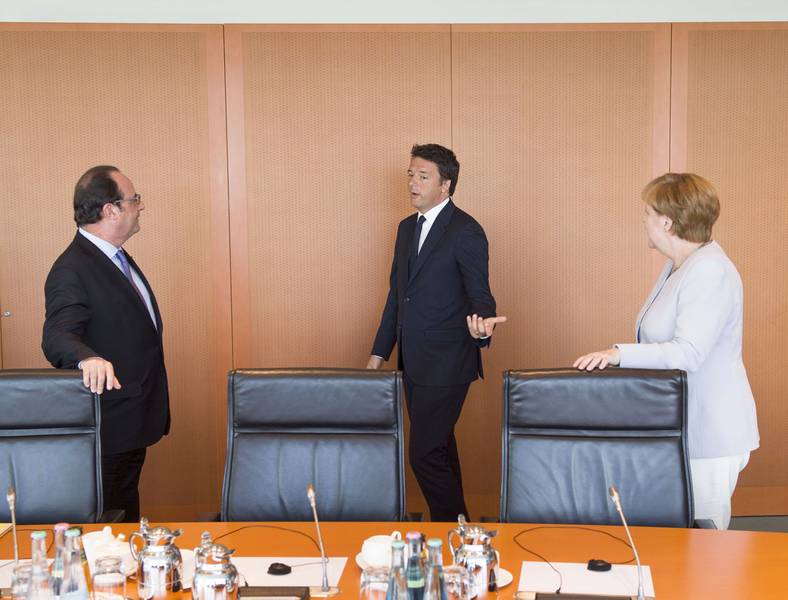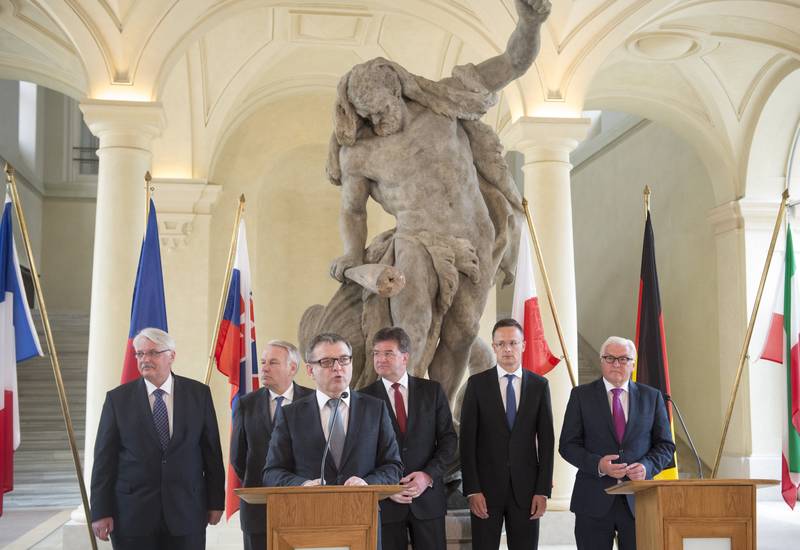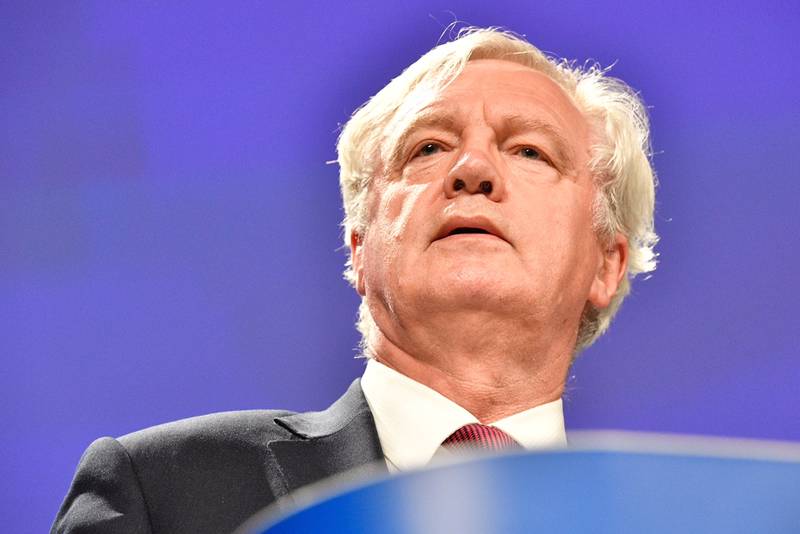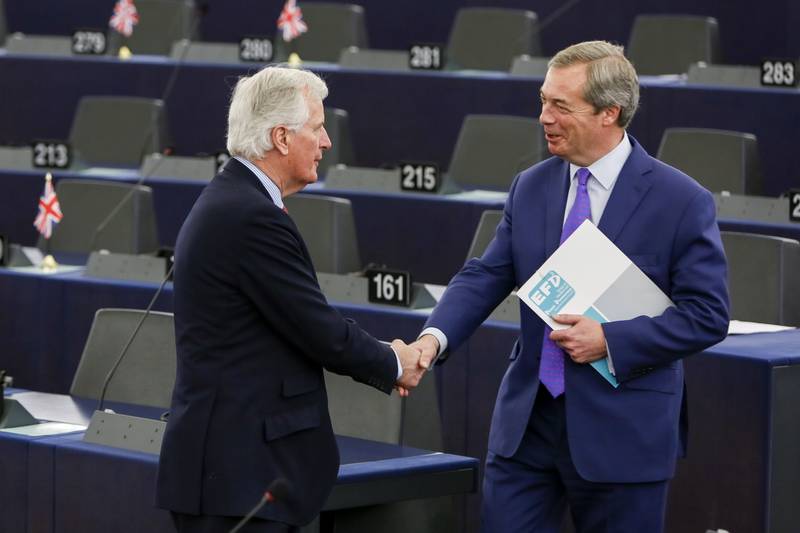EU Is Starting to Deal with Itself ... Again
Adelina Marini, June 28, 2016
 Mere days after the Brexit and just hours before the official EU summit on June 28 and 29, the EU once again failed to demonstrate unity. As it usually happens in difficult times for the Union, a series of meetings in different formats began. First, in Berlin, met the foreign ministers of the six founding states – Italy, Belgium, France Germany, Luxembourg, and The Netherlands. The meeting concluded with a declaration, in which the ministers announced their support for a multi-speed Europe, while at the same time reconfirming their ambition for a closer Union of 27 member states, based on common values and rule of law. The six repeat in the declaration what was already shown as the motto of the European Commission – a strong EU for big things, which does not intrude in small ones.
Mere days after the Brexit and just hours before the official EU summit on June 28 and 29, the EU once again failed to demonstrate unity. As it usually happens in difficult times for the Union, a series of meetings in different formats began. First, in Berlin, met the foreign ministers of the six founding states – Italy, Belgium, France Germany, Luxembourg, and The Netherlands. The meeting concluded with a declaration, in which the ministers announced their support for a multi-speed Europe, while at the same time reconfirming their ambition for a closer Union of 27 member states, based on common values and rule of law. The six repeat in the declaration what was already shown as the motto of the European Commission – a strong EU for big things, which does not intrude in small ones.
The vision of the founding states is for the EU to concentrate on the main challenges, and they are the security of citizens, establishing a stable framework for dealing with migration and refugee flows, economic convergence, and finishing the euro area. Following their meeting, again in Berlin, there was a meeting of the leaders of France, Germany, and Italy, to which European Council President Donald Tusk (Poland, EPP) was also invited. François Hollande, Angela Merkel, and Matteo Renzi also came out with a common declaration in which they elaborate on what was agreed on by the six ministers. They also believe that the EU is strong enough and capable of answering today’s challenges.
They suggest the Union deepens its integration in these three spheres: internal and external security, social cohesion, and youth. The three leaders are of the opinion that a true common foreign, defence, and security policy must be developed. Regarding the economy, the three leaders see the need for deepening of integration in the euro area now in the fields of social issues and taxation policy. Strengthening of initiatives for training, entrepreneurship and access to jobs across the EU is proposed as a strategy to deal with youth unemployment.
While the meeting of Renzi, Merkel, and Hollande was going on in Berlin, foreign ministers of the Visegrad Group countries met in Prague. They requested the removal of European migration policy, for they believe it threatens Europe’s unity. Besides, the four ministers announced they have serious interests, which they will present very firmly during the negotiations for the exit of Great Britain. Word is of the hundreds of thousands of citizens from Central Europe, who work in Great Britain.
Bulgaria, which participated in yet a fourth meeting in Warsaw, declared its opposition to such an approach. According to a high-ranking diplomatic source, it is most reasonable for the debate to be led only in a 27 format. Now is not the time for new ideas. A period of reflection on the current situation is necessary. You cannot make a decision from one day to the next whether to amend the Treaties or not, explained the source. It is in the national interest that Bulgaria has maximum integration with the EU and is part of the decision-making core. A Europe on several speeds is not in Bulgaria’s best interest, added the source, explaining that Bulgaria’s main task is catching up with the others. Sofia agrees that the EU needs changes, but warned that there is a large risk for proposals starting to be put to the table, which are incompatible with each other.
Another Bulgarian concern is how the problem of the rotating Presidency of the Council will be solved, because, according to schedule, Bulgaria needs to take over from Estonia in the second half of 2018. Preceding Estonia’s Presidency is the British one (July-December 2017). This will be one of the topics at the summit on Tuesday and Wednesday. Expectations are for Great Britain to officially announce that it gives up the Presidency, but the important task is to find a solution for moving forward. The Bulgarian concern is that the country is notified at the last minute that it needs to take over the Presidency considerably earlier, although it is prepared for such a scenario.
For now, there are no expectations that Great Britain is going to be pressured to enter a notice for leaving the EU very quickly, but the Bulgarian demand is that waiting for the notice does not paralyse the EU and its work on many European dossiers, which have been blocked up until now awaiting the result of the British referendum.

The Brexit topic will be the main issue at the summit to a point that the leaders will hardly pay any attention to the rest of the subjects on the agenda – migration, the European semester, and foreign policy. The British subject will be served at dinner, which is expected to last long. On Wednesday morning, the leaders of the 27 member states are expected to meet for a working breakfast, during which they are to discuss the way forward. In their declaration, the leaders of France, Germany, and Italy suggest the EU begins, together with European institutions, a process of drafting the Union’s future without Great Britain.
They suggest a new summit in September to discuss the common challenges, faced by the 27 member states, also inviting outsiders to join and contribute to Europe’s perspectives. On the other hand, it is expected that at the October and December summits a report of what is done will be presented and if need be new guidelines will be given.
The European Parliament, however, is not as sympathetic towards Great Britain. The draft resolution, which is expected to be approved at the emergency plenary session this week, demands that the British prime minister announces Great Britain’s exit as early as June 28-29 in order to avoid a period of uncertainty for the EU. Initiators of the draft resolution are the leaders of several large political groups in the EP – Manfred Weber (EPP, Germany), Gianni Pittella (Socialists and Democrats, Italy) with co-author the boss of the EP’s economic committee Roberto Gualtieri (Socialists and Democrats, Italy), Guy Verhofstadt (ALDE, Belgium), Rebecca Harms (Germany), and Philippe Lamberts (Belgium) for the group of the Greens and the European Free Alliance.
The draft also recommends that an EU a-la-carte is avoided, at least regarding the euro area and a restart of the Union is suggested, which includes amendments to the Treaties. There is also an appeal that the Council reshuffles its rotation presidencies in order to avoid disruption of the Council’s work during the British exiting process. MEPs will initiate a debate with the boss of the EC and the European Council before the start of the summit.
Translated by Stanimir Stoev
 David Davis | © European Commission
David Davis | © European Commission Angela Merkel | © Council of the EU
Angela Merkel | © Council of the EU Michel Barnier, Nigel Farage | © European Parliament
Michel Barnier, Nigel Farage | © European Parliament